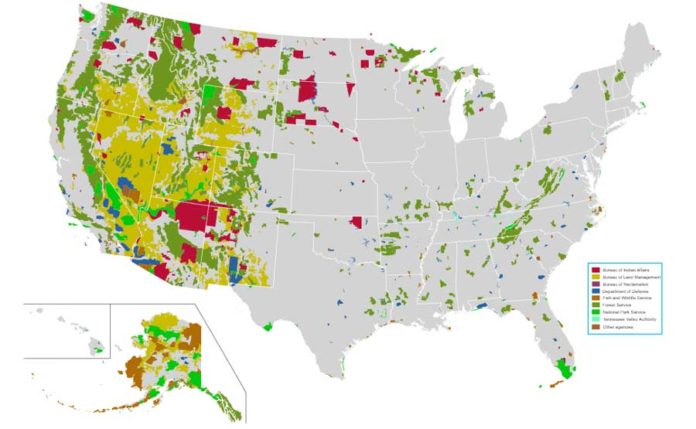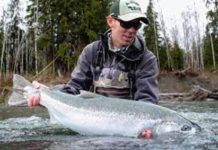Welcome to the latest installment of the Wednesday Wake-Up Call, a roundup of the most pressing conservation issues important to anglers. Working with our friends at Trout Unlimited, Backcountry Hunters & Anglers, the Theodore Roosevelt Conservation Partnership, The Everglades Foundation, Captains for Clean Water, Bullsugar.org, and Conservation Hawks (among others), we’ll make sure you’ve got the information you need to understand the issues and form solid opinions.
If you know of an important issue–whether it’s national or local–that anglers should be paying attention to, comment below, and we’ll check it out!
1. The Fight to Remove Lower Snake River Dams Heats Up
Last Saturday, Congressman Mike Simpson (R-ID) released a video (see above) that made the argument that, unless four dams on the Lower Snake River are removed, Idaho’s native salmon are doomed to extinction. According to an article in the Seattle Times,
His proposal includes removing the earthen berms adjacent to all four Lower Snake River hydroelectric dams to let the river run free, to help save salmon from extinction, while spending billions of dollars to replace the benefits of the dams for agriculture, energy and transportation.
As the Seattle Times continued, “Such a colossal proposal coming from a relatively unknown Republican is a shocker.” The Conservation community jumped at the proposal, seizing the opportunity. The next day, Trout Unlimited published “Best, maybe last, chance for salmon” on its website, explaining the huge decline in salmon populations over the past few decades that made this moment so important.

This feels like an important moment in the fight to save salmon in the Pacific Northwest, and TU has created a page to help you make your voice heard.
Click here for the full story
Click here to take action
2. It’s Time to Put Pebble Mine to Rest

Ever since the U.S. Army Corps of Engineers rejected the permit for Pebble Mine back in November, the focus has shifted to ensuring that the project doesn’t rear its ugly head in the future. An article by Ashley Braun in Hakai Magazine discusses how a coalition is making the case for legislation to end any chance of resource extraction in the region:
That’s why three tribal organizations—UTBB, Bristol Bay Native Association, and Bristol Bay Economic Development Corporation—and many supporters are championing a much more sweeping approach to protections. In addition to calling for EPA action, the coalition wants Congress to declare the broader Bristol Bay region a national fisheries area, says Newman. This legislative proposal, inspired by the fisheries regulations of the Magnuson-Stevens Act, would establish a first-of-its-kind onshore fisheries area. In this case, Newman says, the legislation would reflect similar restrictions on hardrock mining as Section 404(c), but across all of Bristol Bay’s nine major river basins.
Click here for the full story
For more coverage of Bristol Bay issues, check out these stories from around the Web:
3. EF Scientist Explains How Restoration Helps More Than the Everglades

We talk a lot about the benefits to the Everglades ecosystem if the flow of fresh water can be restored. But an article in in Keys Weekly describes a talk by Dr. Steve Davis in which he outlines the ways that a restored Everglades can improve the environment of the entire region.
Restoration will also help rebalance inequities in water management and build up much needed resilience to sea level rise and saltwater intrusion in South Florida. It does this by decreasing vulnerabilities in the system and keeping things in balance.
Click here for the full story
4. Further reading on Conservation Issues

Credit: Source link































